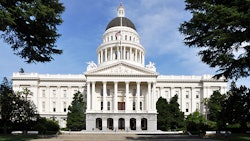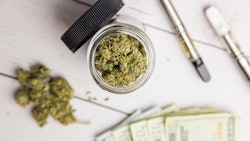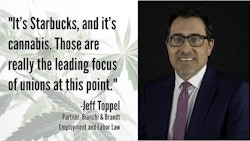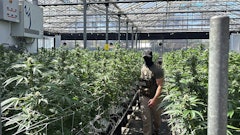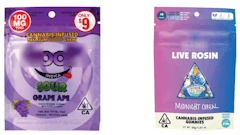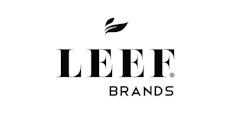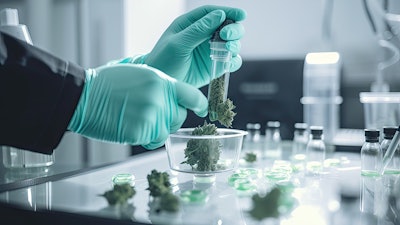
The term “lab shopping” has a negative reputation in the cannabis industry, but many California cultivators and manufacturers are being forced to do just that under a state rule that took effect Jan 1.
That’s because only 18 of California’s 38 licensed testing laboratories are compliant—as of Jan. 8—with the Department of Cannabis Control’s (DCC) new standardized cannabinoids test method and standardized operating procedures required for dried flower and non-infused prerolls.
Per the DCC, the new testing regulations were implemented to help ensure consumers received accurate and consistent information regarding the cannabinoid content of the cannabis and cannabis products they use or consume.
RELATED: Lab Shopping, Purposely Altered Test Results Hurt Cannabis Industry, Lab Executives Say
So, in this case, California operators aren’t shopping for labs as a means to produce more favorable testing, such as high-THC results, but rather to find reliable testing from labs that have demonstrated compliance with the state’s standardized method.
And despite fewer options for cannabis companies to have their flower and prerolls tested to start off the year, the DCC has not been informed of any significant product delays because of the new testing standard, department spokesperson David Hafner told Cannabis Business Times.
“But there could be a slight delay in some products reaching dispensaries in the near term,” he said. “To help prevent this from happening, DCC has been prioritizing re-sampling requests from distributors who had samples with labs that cannot currently conduct flower and non-infused preroll testing."
Following are lists of the laboratories that are compliant and those that are noncompliant with the new rule for flower and preroll testing as of Jan. 8:
| Compliant Labs (as of Jan. 8) | County |
| Harrens Lab Inc. | Alameda |
| Bel Costa Labs Long Beach LLC | Los Angeles |
| pH Solutions LLC | Los Angeles |
| California Cannabis Testing Labs | Los Angeles |
| Encore Labs LLC | Los Angeles |
| CaliGreen Laboratory | Los Angeles |
| HK Holding LLC | Los Angeles |
| Purity Medical Laboratories | Orange |
| Pure Cannalyst Lab Inc. | Orange |
| Landau Laboratories, Inc | Riverside |
| 2 Rivers Labs | Sacramento |
| Infinite Chemical Analysis Labs | San Diego |
| ILS Lab Inc. | San Diego |
| Anresco Incorporated | San Francisco |
| Confidence Analytics CA LLC | San Luis Obispo |
| AGQ GREEN NATURE | Santa Barbara |
| SC Laboratories California LLC | Santa Cruz |
| Certified Ag Labs | Yuma |
| Noncompliant Labs (as of Jan. 8) | County |
| Shasta Laboratory Inc. | Alameda |
| 8 Lane Investments Inc. | Los Angeles |
| Brightside Scientific Inc. | Los Angeles |
| Csa La LLC | Los Angeles |
| La Test Labs LLC | Los Angeles |
| Vk Labs LLC | Los Angeles |
| Proforma Labs LLC | Monterey |
| Excelbis Labs LLC | Orange |
| Qtl Inc. | Orange |
| Pride Analytics And Consulting LLC | Riverside |
| Green Leaf Labs Ca LLC | Sacramento |
| Big Valley Analytical Inc. | Sacramento |
| High Sierra Analytics Inc. | San Benito |
| U.S. Cannabis Laboratories | San Bernardino |
| Verity Analytics LLC | San Diego |
| Pharmlabs LLC | San Diego |
| Nature Safe Labs | San Diego |
| Pure Analytics LLC | Sonoma |
| Advanced Analytical Labs Inc. | Sonoma |
| Spectrum Cannalabs Inc. | Yolo |
The 20 labs that are not approved by the DCC can still become approved if they demonstrate verification of the state’s standardized cannabinoid method. Until then, they are limited to testing products like edibles and concentrates.
“We expect to verify the testing methods of additional licensed laboratories in the near future,” Hafner said.
Laboratories that are noncompliant with the 2024 standard but continue to issue certificates of analysis (COAs) for flower and/or prerolls may be subject to citation, Hafner said. He did not mention the possibility of license revocation.
In one of the more publicized cases of a California cannabis operator losing its licensure, Sacramento-based Sequoia Labs “voluntarily” surrendered its permit in 2018 after learning that its lab director had been falsifying reports and excluding more than a dozen pesticides from its testing protocol and results.
Among the 71 testing laboratories that California state officials have licensed for its adult-use marketplace since mid-2019, four have had their licenses revoked, 13 surrendered their licenses and 16 let their licenses expire, according to the DCC’s database.
Since the 38 labs licensed in California’s current marketplace are independently operated, strengthening uniformity in their testing procedures was a key driver for the DCC.
For background, the DCC’s standardized cannabinoids test method was required by law following Gov. Gavin Newsom’s Oct. 5, 2021, signing of Senate Bill 554. At the time, the California Cannabis Industry Association and the California Cannabis Manufacturing Association were among those that supported the bill, according to a Senate floor analysis.
A lack of standardized testing facilities meant that one cannabis batch could produce inconsistent results between and even within testing facilities, according to the analysis. Notably, it was important to the bill’s supporters that COAs for cannabis and cannabis products represent accurate results statewide and not cause confusion for consumers.
“We need to ensure that the things we are ingesting are safe and are as advertised,” the bill’s supporters wrote at the time. “This is particularly true with cannabis. While it is a natural product, like other agricultural products, it can contain chemicals, fertilizer, heavy metals, etc. It can also contain powerful medicinal compounds, and consumers should know that the potency levels advertised are accurate.”
These 2021 concerns came on the heels of the vaping-associated pulmonary injury (VAPI) crisis that involved an outbreak of illnesses in the summer of 2019. There was speculation as to why people were getting sick from vaping products at the time, but it was later determined that vitamin E acetate—used both as a cutting agent and a viscosity adjuster—was responsible for the illnesses.
RELATED: What's in Your Vape Cartridge Now?
But when the DCC began crafting its regulations in 2022 for standardized cannabis testing, the department’s work came on the heels of concerns about cannabis potency inflation and “lab shopping” by businesses hoping to secure higher THC levels. This is because a large percentage of U.S. cannabis consumers prefer higher THC potencies for their flower and prerolls.
At a peak in 2022, 40% of U.S. cannabis consumers reported they preferred cannabis that’s 30% or higher THC, according to a quarterly U.S. Consumer Insights survey by Brightfield Group.
RELATED: The Cannabis THC Potency Debate: What Do Customers Want?
But the ultimate goal for DCC regulators following the passage of S.B. 554 was to create standardized testing regulations that protect public health and safety, department Director Nicole Elliott said in July 2022.
“One of the challenges we face in regulating an industry that is not federally recognized is the lack of standardized and validated methods for testing,” she said. “Individual, licensed laboratories use different methods, which may produce inconsistent results and inaccurate data on cannabis cannabinoid content. DCC is working to change that so there is greater integrity in the market, accurate information for consumers, and confidence among stakeholders.”









